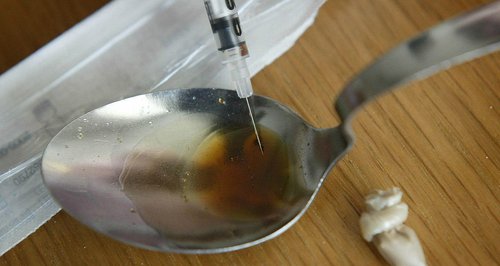On Air Now
The Capital Evening Show with Jimmy Hill 7pm - 10pm
5 May 2019, 11:56 | Updated: 5 May 2019, 11:58

Changing drugs policy or devolving it to Scotland could help tackle the country's disproportionately high rates of people dying from using them, MPs have been told.
The most recent official statistics show Scotland's 934 drug deaths in 2017, up from 224 in 1997, mean its rate is 2.5 times higher than elsewhere in the UK.
In written evidence to Westminster's Scottish Affairs Committee inquiry into problem drug use in Scotland, organisations including NHS Health Scotland, Addaction and the Glasgow Alcohol and Drug Partnership called for changes to UK legislation or further devolution of powers to enable testing and safer consumption centres to be set up.
Proposals to set up a safer injecting centre in Glasgow to tackle the drug-related HIV outbreak, which the city's Alcohol and Drug Partnership said were at 140 people diagnosed as of last month, is blocked by UK legislation.
NHS Health Scotland said: "The UK-wide Misuse of Drugs Act 1971 prevents the Scottish Government from pursuing their public health approach to drugs policy and from implementing evidence-based interventions to address the specific drivers of problem drug use in Scotland, notably around safer consumption facilities.
"This means the Scottish Government is prevented from pursuing the best possible health outcomes for people who are, or have been, drug users."
A key recommendation was: "Make the necessary changes to the Misuse of Drugs Act 1971 to enable the Scottish Government to pursue their public health approach to drugs policy (including the piloting of a safer consumption facility in Glasgow City Centre) or devolve the powers in this area."
Charity Addaction said: "Scotland is prevented from introducing a completely unique approach to drug misuse due to UK-wide drug legislation, such as the Misuse of Drugs Act 1971 and the Psychoactive Substances Act 2016.
"This legislation precludes Scotland from controlling the schedule or classification of specific drugs as well as introducing certain policies or services that could be interpreted as breaching that legislation, most notably drug consumption rooms."
It said this is "preventing an innovative and evidenced response to a public health crisis".
Poverty and deprivation were cited as drivers of problematic drug use in Scotland, with NHS Health Scotland highlighting 52% of of drug deaths in 2016 were in Scotland's most deprived areas, compared to 3% in the least deprived.
Mental health issues and adverse childhood experiences were linked to people developing drug problems, the evidence indicated.
Committee chairman Pete Wishart said: "As we start our inquiry into problem drug use in Scotland it's important that we understand why some people are more likely to engage in drugs use so support can be targeted to people at greater risk.
"The written evidence my committee has received reveals that there are many complex factors that can lead an individual to problematic drug use, and some of these influences are felt more keenly in Scotland than elsewhere in the UK."